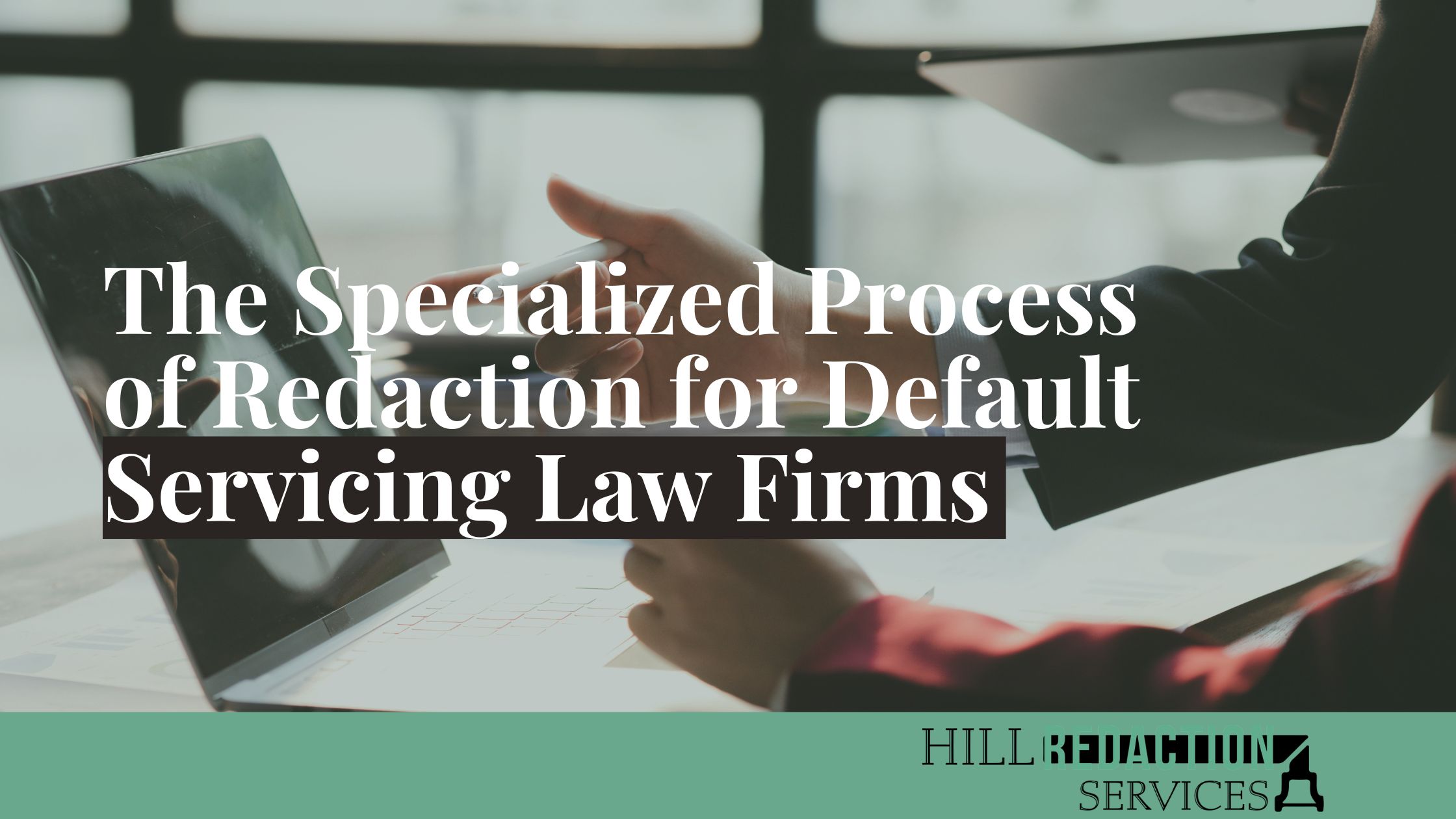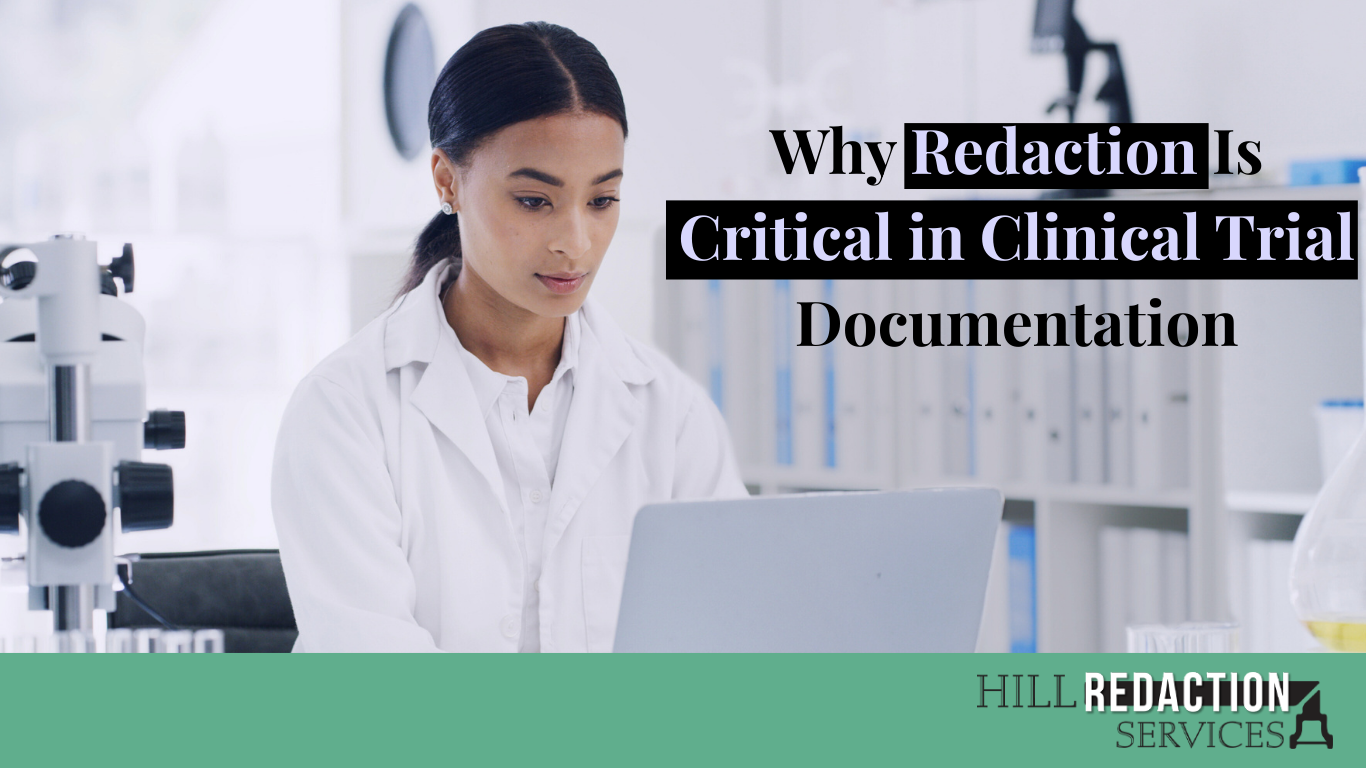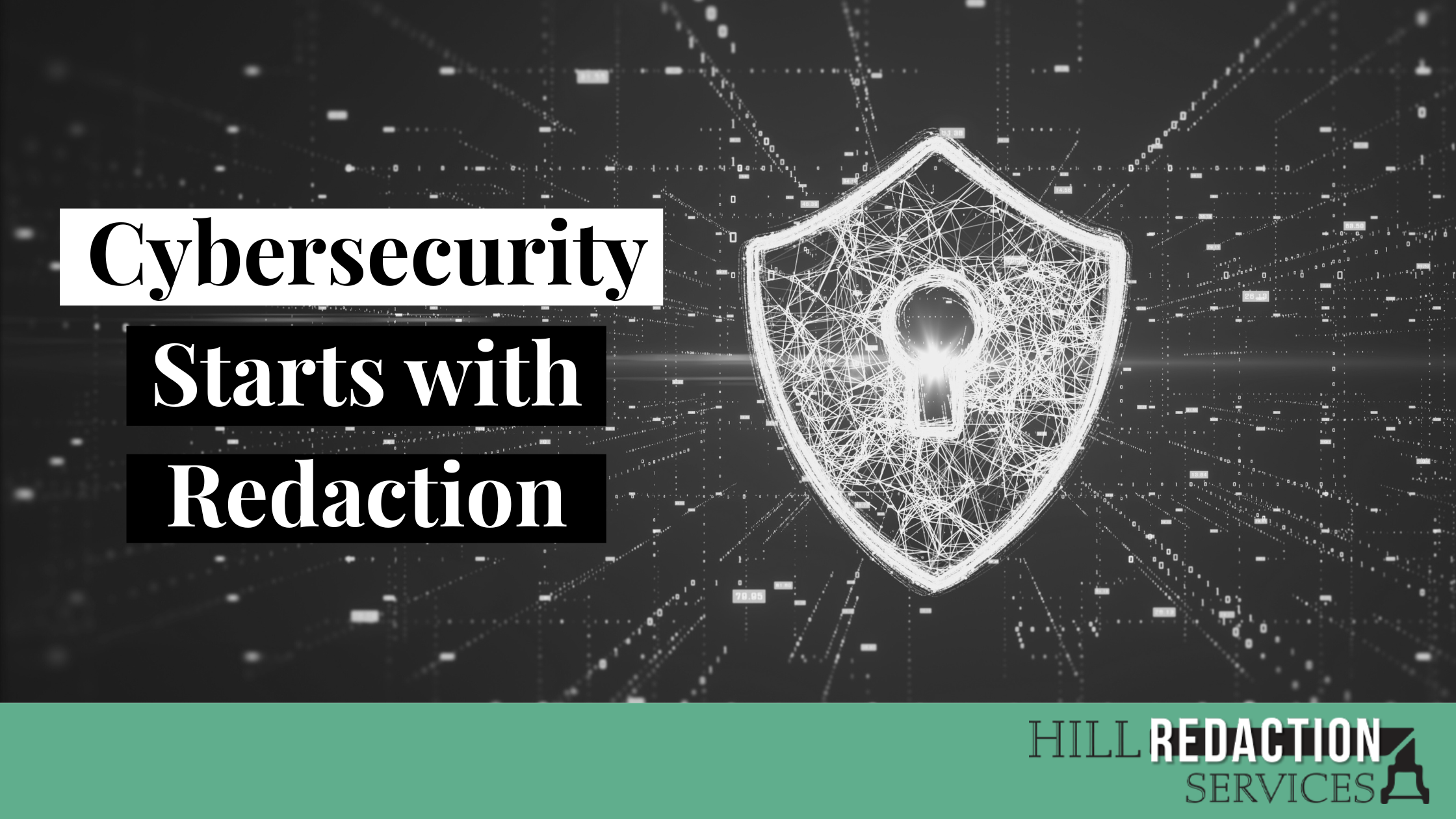
The Specialized Process of Redaction for Default Servicing Law Firms
Document redaction is a critical process for default law firms that handle bankruptcy, foreclosure, collections, and related litigation. Document redaction makes it possible for default law firms to comply with legal standards and safeguard sensitive information. This paper aims to outline how document redaction applies to default law firms and the techniques, legal considerations, and best practices that law firms must adopt to maintain confidentiality and uphold compliance standards.
What is Document Redaction?
Document redaction is the process of editing documents to remove or obscure sensitive information. This renders them suitable for public viewing or sharing among authorized parties. Default law firms face unique challenges in document redaction due to the sensitive nature of the information they handle. Legal documents often contain personally identifiable information (PII), financial data, and other confidential details that, if disclosed, could lead to identity theft, financial fraud, or reputational harm.
Default Law Firms and Redaction Standards
Document redaction in the legal space is governed by a range of legal frameworks, including federal and state laws, and individual court rules. Below are key legal considerations that default law firms must navigate:
Federal Regulations
- The Fair Debt Collection Practices Act (FDCPA) – This federal law restricts how debt collectors can handle consumer information and mandates that collectors maintain confidentiality while seeking repayment of debts.
- The Gramm-Leach-Bliley Act (GLBA) – This act protects consumers’ personal financial information and imposes strict guidelines on sharing such information. Default law firms must ensure that any documentation, including financial data, is appropriately redacted to comply with this regulation.
State Laws
Default law firms have to consider that each state may have laws governing document disclosure and privacy. For instance, some states have enacted statutes targeting the redaction of personal information in foreclosure proceedings, requiring that default firms familiarize themselves with the rules applicable in their jurisdiction.
Court Rules
Individual courts often have their own rules regarding document submission, particularly in cases of foreclosure or collection litigation. For example, many courts require redacted versions of filings to protect the identity of defendants, thus reinforcing the need for law firms to understand procedural mandates.
Redaction Techniques
The effectiveness of document redaction hinges on the techniques employed to obscure sensitive information. Default law firms can utilize a combination of manual and automated methods:
Manual Redaction
Manual redaction involves digitally editing documents to obscure sensitive data. While this method may be effective for a limited number of documents, it is labor-intensive and prone to human error. When documents must be filed with the court, manual techniques must ensure that all sensitive information is adequately obscured. As such, manual redaction is much more effective as a means to review automated redaction.
Automated Redaction Tools
Many redaction firms now employ software solutions designed specifically for document redaction. These tools can expedite the process. Automated redaction utilizes automated algorithms to identify and redact sensitive information. This method can seem to save time. However, there are frequent issues with both over-redaction and missing PII altogether.
Hybrid Approach
Redaction firms like Hill Redaction Services have found that a combination of manual and automated methods is the most effective strategy. For instance, automated tools can be used to identify sensitive data. The initial redaction is then followed by a thorough manual review to ensure compliance before document submission.
Best Practices in Document Redaction
Developing an effective redaction process requires the implementation of best practices to ensure thorough redaction for default law firms.
Training and Awareness
Investing in regular training sessions for staff on redaction best practices and compliance standards to be aware of is essential. Personnel must be well-versed in recognizing what constitutes sensitive information, especially in case-by-case instances. Staff must also understand the implications of failing to accurately redact documents.
Use of Encryption
Protecting documents during transmission is of high importance. Law firms and redaction agencies should utilize encryption to safeguard sensitive electronic files while in transit. This reduces the risk of interception by unauthorized third parties.
The Fine-Tuned Art of Document Redaction for Default Law Firms
The intricacies of document redaction within default law firm operations demand a meticulous approach that is both legally sound and ethically responsible. Law firms must remain vigilant, continually updating their practices to comply with evolving legal standards and technological capabilities. By adhering to best practices, investing in staff training, and implementing rigorous quality control measures, default law firms can navigate document redaction while upholding the trust of their clients and the integrity of the legal processes they serve.
Contact Hill Redaction Services, a reputable and trusted document redaction service provider for default law firm redaction needs. Call our office or fill out our form on the website to contact us today.
Related Posts

The Specialized Process of Redaction for Default Servicing Law Firms
Document redaction is a critical process for default law firms that handle bankruptcy, foreclosure, collections, and related litigation. Document redaction makes it possible for default law firms to comply with legal standards and safeguard sensitive information. This paper aims to outline how document redaction applies to default law firms and the techniques, legal considerations, and best practices that law firms must adopt to maintain confidentiality and uphold compliance standards.
What is Document Redaction?
Document redaction is the process of editing documents to remove or obscure sensitive information. This renders them suitable for public viewing or sharing among authorized parties. Default law firms face unique challenges in document redaction due to the sensitive nature of the information they handle. Legal documents often contain personally identifiable information (PII), financial data, and other confidential details that, if disclosed, could lead to identity theft, financial fraud, or reputational harm.
Default Law Firms and Redaction Standards
Document redaction in the legal space is governed by a range of legal frameworks, including federal and state laws, and individual court rules. Below are key legal considerations that default law firms must navigate:
Federal Regulations
- The Fair Debt Collection Practices Act (FDCPA) – This federal law restricts how debt collectors can handle consumer information and mandates that collectors maintain confidentiality while seeking repayment of debts.
- The Gramm-Leach-Bliley Act (GLBA) – This act protects consumers’ personal financial information and imposes strict guidelines on sharing such information. Default law firms must ensure that any documentation, including financial data, is appropriately redacted to comply with this regulation.
State Laws
Default law firms have to consider that each state may have laws governing document disclosure and privacy. For instance, some states have enacted statutes targeting the redaction of personal information in foreclosure proceedings, requiring that default firms familiarize themselves with the rules applicable in their jurisdiction.
Court Rules
Individual courts often have their own rules regarding document submission, particularly in cases of foreclosure or collection litigation. For example, many courts require redacted versions of filings to protect the identity of defendants, thus reinforcing the need for law firms to understand procedural mandates.
Redaction Techniques
The effectiveness of document redaction hinges on the techniques employed to obscure sensitive information. Default law firms can utilize a combination of manual and automated methods:
Manual Redaction
Manual redaction involves digitally editing documents to obscure sensitive data. While this method may be effective for a limited number of documents, it is labor-intensive and prone to human error. When documents must be filed with the court, manual techniques must ensure that all sensitive information is adequately obscured. As such, manual redaction is much more effective as a means to review automated redaction.
Automated Redaction Tools
Many redaction firms now employ software solutions designed specifically for document redaction. These tools can expedite the process. Automated redaction utilizes automated algorithms to identify and redact sensitive information. This method can seem to save time. However, there are frequent issues with both over-redaction and missing PII altogether.
Hybrid Approach
Redaction firms like Hill Redaction Services have found that a combination of manual and automated methods is the most effective strategy. For instance, automated tools can be used to identify sensitive data. The initial redaction is then followed by a thorough manual review to ensure compliance before document submission.
Best Practices in Document Redaction
Developing an effective redaction process requires the implementation of best practices to ensure thorough redaction for default law firms.
Training and Awareness
Investing in regular training sessions for staff on redaction best practices and compliance standards to be aware of is essential. Personnel must be well-versed in recognizing what constitutes sensitive information, especially in case-by-case instances. Staff must also understand the implications of failing to accurately redact documents.
Use of Encryption
Protecting documents during transmission is of high importance. Law firms and redaction agencies should utilize encryption to safeguard sensitive electronic files while in transit. This reduces the risk of interception by unauthorized third parties.
The Fine-Tuned Art of Document Redaction for Default Law Firms
The intricacies of document redaction within default law firm operations demand a meticulous approach that is both legally sound and ethically responsible. Law firms must remain vigilant, continually updating their practices to comply with evolving legal standards and technological capabilities. By adhering to best practices, investing in staff training, and implementing rigorous quality control measures, default law firms can navigate document redaction while upholding the trust of their clients and the integrity of the legal processes they serve.
Contact Hill Redaction Services, a reputable and trusted document redaction service provider for default law firm redaction needs. Call our office or fill out our form on the website to contact us today.





